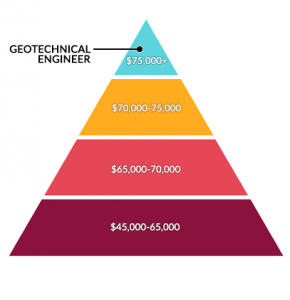A Biased View of Geotheta
Table of ContentsAll about GeothetaGeotheta - An OverviewGetting The Geotheta To WorkThe Buzz on Geotheta
They work together with civil engineers, structural engineers, architects, and other experts to integrate geotechnical factors to consider right into the general task design and construction process. This needs effective teamwork, control, and interaction to make sure that the geotechnical aspects straighten with the project purposes and meet regulative requirements.Mining & Materials Design: Principles of drilling, penetration prices, and variables affecting the choice of boring method. Blasting techniques in surface area and below ground functions. Mechanical and continuous methods to fragmentation, including longwall shearing and fullface boring.
Modelling of piece and particle dimension distributions; comminution as a transfer feature. Comminution technology: crushing, grinding, dimension category. Integrated evaluation of fragmentation and comminution procedures. Provided by: Mining & Materials Design.
The Best Guide To Geotheta
Bachelor's degree programs in civil, geotechnical, geological, and ecological design generally last 4 years and consist of basic education courses in English, social science, and the liberal arts, along with programs in sophisticated mathematics, structural geology, and liquid mineralogy. (https://www.imdb.com/user/ur185987626/?ref_=nv_usr_prof_2)
Geotechnical design involves the analysis of the soil and rock conditions at a certain site, and their ramifications for the growth of that site. As the majority of frameworks rely upon the ground for assistance, it is without shock that a detailed understanding of the ground problems, and the suitability of structure systems, are essential to the long-lasting stability and efficiency of the building or structure.
Specialising in the investigation of geological developments and ground behaviour, geotechnical engineers do clinical investigations and testing to comprehend the effect these geological developments might carry the design and building of structure, civil and infrastructure tasks. This experience is important for the layout and building and construction of structures, roads, passages, dams, bridges, and water system and sewer system.
The geotechnical team at Douglas Allies regularly consult with architects, design engineers, developers, and contractors to make suggestions on layout and advancement propositions to guarantee that the developed structures are suitably designed for the ground problems. The style of footing systems needs to consider the weight of the framework, the ability of the ground to support that weight together with activity resistances and efficient building and construction.
Geotheta Things To Know Before You Get This
This job is considerably streamlined by the use our Douglas Map geospatial system that makes this details readily accessible in an easy to utilize web internet browser user interface. A geotechnical engineer will certainly guide the drilling of boreholes and examination pits to accumulate soil and various other examples, and additionally analyze surface area attributes and ground direct exposures to create a geotechnical version of the subsurface problems.
Relying on the job kind and ground problems encountered, research laboratory screening may to name a few points evaluate stamina, compressibility, sensitivity and/or leaks in the structure of soil and rock examples. Hereafter information is check these guys out collected and looked at, the results are utilized for a geotechnical design of the site, which is generally provided as areas across the website.

A geotechnical investigation naturally can just evaluate the ground problems at the areas drilled or excavated. Natural variations in soil and rock conditions can occur across a website and in between examination locations. It is therefore excellent practice that the geotechnical engineer be preserved throughout building and construction of the task to supply on-site verification that the ground problems come across are regular with the assumptions and advice given in the geotechnical investigation report.
The 5-Minute Rule for Geotheta
Geotechnical designers use their thorough understanding of dirt and rock to assess threat and resolve issues on diverse facilities projectsGeotechnical engineering is a specialist branch of civil design which takes a look at the practices of planet materials and the application of dirt and rock technicians. Geo Tech Engineer. As a geotechnical engineer, you will evaluate the physical, mechanical and chemical residential or commercial properties of dirt and rock in order to develop structures, preserving structures and earthworks
Geotechnical design is very closely connected to and overlaps with, both engineering geology and ground engineering - https://www.anyflip.com/homepage/zuylo. It's possible to specialise in geotechnics or benefit a geotechnical business however be called a design rock hound or a ground engineer. As a geotechnical designer, you'll need to: construct and preserve relationships with clients and other professionals associated with the website, throughout each projectmaintain safety standards on site bear in mind cost ramifications when you make recommendationsstudy geological maps and aerial photographs from an array of resources and from different time periodsexamine building and construction prepares to see just how possible they are based upon your understanding of the siteinvestigate dangers or geological threats for the sitesearch for ecologically sensitive features, such as landfill begin to establish valid and interpretive ground modelsplan area investigationsdrill and evaluate examples of bedrock, dirt, groundwater and extra materials oversee other experts on sitesolve technical problems as they emerge, such as unforeseen structures at drill sitesmonitor conditions during and after building and construction to ensure frameworks are secure in the short and lengthy termadding data collected on site to your initial researchcreating geotechnical computations, drawings, and two or three-dimensional computer designs analyzing the datamaking recommendations concerning the proposed usage of the site
